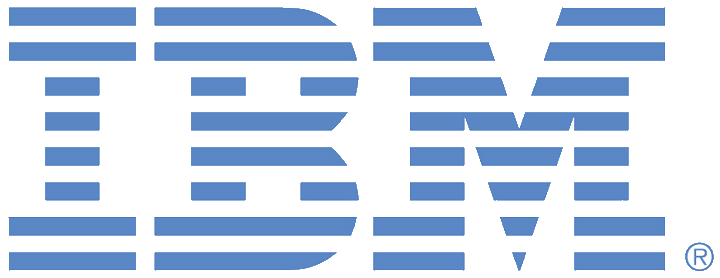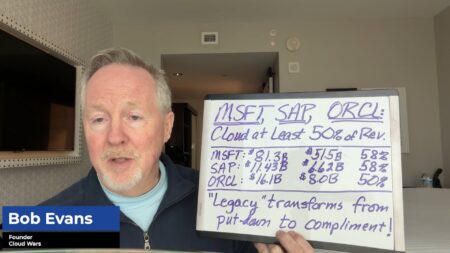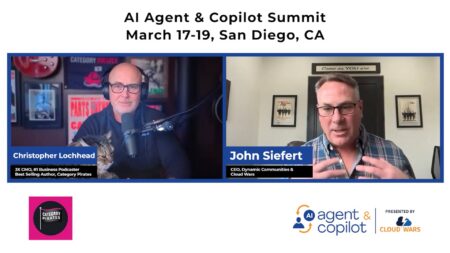
IBM’s explosive GenAI business has reached an annualized run rate of $7.5 billion just 18 months after its launch and is revitalizing customer demand across much of IBM’s vast portfolio, including mainframes, consulting, and software.
Under CEO Arvind Krishna, the 114-year-old icon has made AI and hybrid cloud the cores of IBM’s resurgent business, with last week’s Q2 earnings results revealing the companywide impact the AI business is having.
That impressive reorientation around one of the hottest new technologies the world has ever seen also underscores the remarkably broad and deep strategic transformation Krishna has led, which has flipped the script from the hazy old days of “account control” to expanding the TAM via aggressive and wide-ranging partnerships.
During the Q2 earnings call last week, one analyst asked Krishna to discuss how the generation of a $7.5-billion AI business in just 18 months has affected customer demand for IBM’s “non-AI” products and services. I think that while that is, today, a great question, it is also ironically one that will rapidly become irrelevant because in an extremely short period of time, IBM will no longer have any “non-AI” products and services.
In addition, the analyst asked Krishna to describe if and how customers are “prioritizing AI over non-AI” and whether AI is driving “cannibalization” within customer budgets or if the AI spending boom is “incremental” to customers’ more-traditional tech spending.
Addressing IBM’s extensive tech stack relative to AI, Krishna said, “If you look at it first from the semiconductors and the infrastructure level, I would tell you that this is completely incremental.”
Similarly, Krishna said, the increased revenue IBM is seeing for its “enabling software layers” is “purely incremental” as well: “There is no cannibalization there with alternate forms of technology,” he said.
But in the realm of IBM Consulting, which in Q2 contributed 31.2% ($5.3 billion) to IBM’s total revenue of $17 billion and is a key element in Krishna’s strategy for driving highly differentiated value for clients, cannibalization begins to rear its head.
“I will tell you that the cannibalization is gonna come from the fourth part,” Krishna said of his multi-part answer. “People are looking at their own internal labor expenses and people are looking at their third-party labor expenses, and they’re looking to decrease those to make room for what they’re doing around software,” he said.
“When you look at AI coming into software products — in our case, in Apptio, in Hashicorp, and in Turbonomic — it actually makes those products better and more able to compete better against others. So it’s not a cannibalization because that would apply to ourselves,” Krishna said.
But it’s a different dynamic, he said, with consulting.
“If I look at consulting, yes, there is a big piece of the AI book of business that is coming because people are directing their dollars towards that kind of consulting as opposed to alternate forms of consulting. And that is why it’s really important to be focused on what we call transformative projects, which includes AI, but also includes some of our partners, be it the cloud partners or SAP or Oracle or Palo Alto, etc.
“Because while that kind of project is far more robust and less likely to be cannibalized, some other parts of customer application development do tend to get cannibalized towards AI.”

AI Agent & Copilot Summit is an AI-first event to define opportunities, impact, and outcomes with Microsoft Copilot and agents. Building on its 2025 success, the 2026 event takes place March 17-19 in San Diego. Get more details.
Strange Bedfellows: AI and System Z
Krishna also spoke about the impact AI is having on IBM’s mainframe business.
“The watsonx Code Assistant for Z helps people modernize their mainframe environment helps you understand and if you want translate your Cobol code into Java, is really taking off and has got very wide adoption,” Krishna said “We thought people would use it to just modernize Kubernetes Java, but actually in the vast majority of the cases, people are also using it to understand the tens of millions of lines of code they already have and then decide what makes sense to modernize versus what makes sense to keep now that you can document it and know what it does.
“The second one that is very exciting that we’re bringing out in this third quarter is a watsonx assistant for Z that helps you have an AI administrator that manages your mainframe environment in addition to the people you have who manage it.
“And these are, I think, somewhat unique to us,” Krishna said.
Final Thought
It would be interesting to see how many shiny new AI startups have built up $7.5-billion books of business in just 18 months as IBM has done. I suspect there are some, but surely not very many —less than five, I would bet.
Yet here we have a 114-years-young company not only creating a hypergrowth AI business but also one that makes its entire portfolio stronger and thereby aligns itself more tightly with customers’ priorities here in the AI Revolution.
Hats off to Krishna and company for a great Q2 and for having the courage to create its own unique and high-value future.
Ask Cloud Wars AI Agent about this analysis










